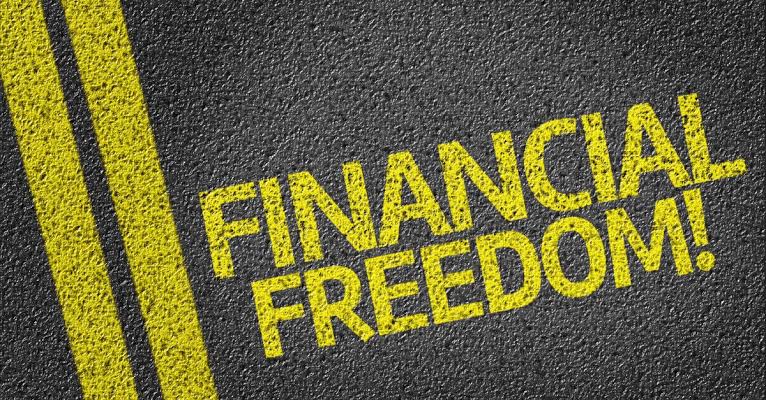How Does Minimalism Relate To Financial Independence?

Minimalism, a lifestyle centered around simplifying one’s possessions and priorities, aligns closely with the pursuit of financial independence.
By embracing minimalism, individuals can reduce expenses, focus on what truly matters, and achieve greater financial freedom.
Let’s explore how minimalism relates to financial independence and how adopting minimalist principles can lead to a more secure financial future.
Go https://trade-proair.com and delve into how minimalism streamlines the path to financial clarity with guidance from top financial thinkers.
Simplifying Expenses
Minimalism encourages individuals to declutter their lives, which includes trimming unnecessary expenses.
By cutting back on non-essential purchases and focusing on essential needs, minimalists can save more money and allocate it towards achieving financial independence.
For example, instead of buying multiple gadgets and subscriptions, a minimalist might opt for a single, multipurpose device and prioritize experiences over material possessions.
Living Below Means
Minimalism emphasizes living below one’s means, which is a fundamental principle of financial independence.
By adopting a minimalist lifestyle, individuals can avoid lifestyle inflation and resist the temptation to overspend.
This allows them to save more money, invest wisely, and gradually build wealth over time.
Living below one’s means is essential for accumulating savings and achieving financial independence in the long run.
Prioritizing Experiences Over Material Possessions
Minimalism encourages individuals to prioritize experiences and relationships over material possessions.
By focusing on what brings true fulfillment and happiness, minimalists can spend their money more intentionally and avoid unnecessary consumption.
This shift in mindset not only leads to greater personal satisfaction but also helps individuals save money and progress toward financial independence faster.
Real-World Example: The Tiny House Movement
The Tiny House movement is a practical example of how minimalism can be applied to achieve financial independence.
Tiny house owners choose to live in small, minimalist homes to reduce living expenses, minimize environmental impact, and prioritize experiences over material possessions.
By embracing a simpler lifestyle, they can afford to invest more in experiences, travel, and personal development while still working towards financial independence.
How can you apply minimalist principles to your daily life to reduce expenses and save more money?
You can start by evaluating your possessions and identifying items that you no longer need or use.
Embrace the idea of decluttering and only keeping items that serve a practical purpose or bring you genuine joy.
Consider adopting a “one in, one out” rule for purchases to prevent unnecessary accumulation of belongings.
Additionally, practice mindful spending by carefully considering each purchase and asking yourself if it aligns with your values and priorities.
By adopting these minimalist principles, you can reduce expenses and save more money over time.
What possessions or expenses can you eliminate or reduce to align with your financial goals?
You can begin by examining your discretionary spending and identifying areas where you can cut back.
For example, consider reducing dining out expenses by cooking more meals at home or canceling unused subscription services.
Evaluate your wardrobe and consider donating or selling clothes that you no longer wear.
Additionally, reassess your housing and transportation expenses to see if there are opportunities to downsize or find more cost-effective alternatives.
By eliminating or reducing these expenses, you can align your spending with your financial goals and free up more money for saving and investing.
How can adopting a minimalist mindset contribute to your journey toward financial independence?
- Adopting a minimalist mindset can significantly contribute to your journey toward financial independence by helping you prioritize what truly matters and avoid unnecessary expenses.
By focusing on experiences over material possessions, you can redirect your resources toward activities that bring lasting fulfillment and happiness.
Additionally, living below your means and embracing intentional spending can accelerate your savings rate and increase your ability to achieve financial independence sooner.
Ultimately, by simplifying your lifestyle and embracing minimalist principles, you can gain greater control over your finances and move closer to your goal of financial freedom.
Practical Tips
- Evaluate Your Spending Habits: Take a critical look at your expenses and identify areas where you can cut back or eliminate non-essential purchases.
- Set Clear Financial Goals: Define your financial goals and create a plan to achieve them. Prioritize saving and investing to build wealth and achieve financial independence.
- Practice Mindful Consumption: Before making a purchase, ask yourself if the item brings value to your life and aligns with your priorities. Avoid impulse buying and focus on intentional spending.
- Focus on Experiences: Invest in experiences that bring joy and fulfillment, such as travel, hobbies, and quality time with loved ones.
These experiences often provide greater satisfaction than material possessions.
Final Thoughts
Minimalism offers a practical and holistic approach to achieving financial independence.
By simplifying expenses, living below means, prioritizing experiences over possessions, and embracing mindful consumption, individuals can reduce financial stress, increase savings, and work towards a more secure financial future.
By integrating minimalist principles into your lifestyle, you can gain greater control over your finances and move closer to the goal of financial independence.
So, are you ready to embrace minimalism and take control of your financial destiny?








